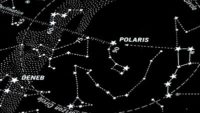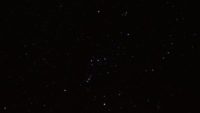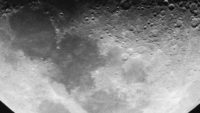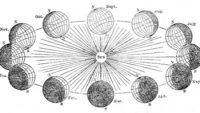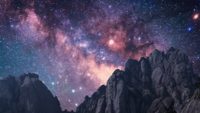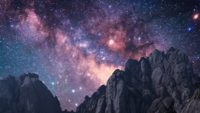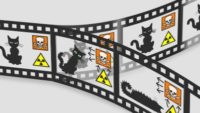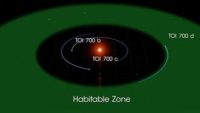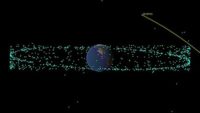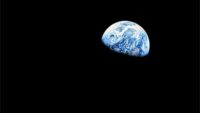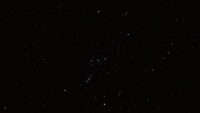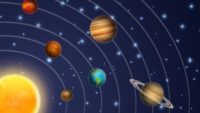The naked eye allows us to see just a little of God’s heavenly handiwork, but even this little bit clearly declares God’s glory.1 As more powerful telescopes peer deeper into space, more and more reasons to question the secular origins story accumulate. Recently, astronomers were surprised by very distant spiral galaxies. As described in a popular science news article, “New results from an ambitious sky… More… …read more Source: icr.org
The heavens are expected to declare even more of God’s glory1 this week. Probably early Wednesday morning, the Lyrid meteor shower will peak.2 For those who are socially isolated due to the coronavirus pandemic, this event is an opportunity to enjoy a little more of God’s creation, as well as a reminder that our solar system is young. As comets approach the sun, they lose material as ices in the co… More… …read more Source: icr.org
“Were it not for the asteroid, humans would never have evolved,” said Ian Miller, curator of paleobotany and director of earth and space sciences at the Denver Museum of Nature & Science.1 Such is the science of evolution that explains the origin of mankind. Miller and other evolutionists maintain the massive asteroid strike of the Yucatan peninsula (allegedly 66 million years ago) wiped out the dinosaurs… More… …read more Source: icr.org
By Dr. Danny R. Faulkner How astronomers track Polaris and other Cepheid stars, issues related to the North Star, and how it relates to cosmology in a stellar evolutionary framework. …read more Source: AIG Daily
A recent study has ruled out a possible candidate for dark matter, the mysterious invisible “stuff” said to comprise 85% of the matter in our universe.1,2 The Big Bang model needs dark matter for a number of reasons. So, this is bad news for the Big Bang model. Most secular cosmologists believe in dark matter. Some biblical creationists also think dark matter exists,3 but others (including me) are … More… …read more Source: icr.org
Stumps big bang boffins …read more Source: <a href=https://creation.com/a/14176 target=_blank title="Synchronized dance of dwarf galaxies” >creation.com
At church meetings, Ross still makes blatantly false claims, including about church fathers, human fossils, Neandertals, and the flood. …read more Source: creation.com
By Ken Ham What do the star Betelgeuse, “mini-moons,” dark energy, and the big bang all have in common? They’re all topics of discussion of astronomical importance on the latest issue of Answers News, our weekly live news program. Normally, three co-hosts discuss the latest in science and culture news from a biblical perspective. But this week’s episode was a bit different. One of our regular hosts, Bodie Hodge, was joined by AiG astronomer Dr. Danny Faulkner to discuss what’s going on in astronomical research and point you back to biblical truth as it relates to the heavens, stars, moons, [More]
By Dr. Danny R. Faulkner Discover how a new “mini-moon” orbits the earth, how it compares with the primary moon, where it’s going, and what is the relevance for Christians. …read more Source: AIG Daily
Astronomers have discovered a Jupiter-sized extrasolar planet (exoplanet) orbiting so close to its host star that it is “perilously close” to the distance where it can be torn apart by gravitational forces.1-3 Astronomers call these planets “hot Jupiters” because they are rather large planets with masses comparable to that of Jupiter, and their nearness to their host stars causes them to … More… …read more Source: icr.org
Why do we have solar wind? Startling discoveries by Voyager 2 show its great benefits to life. …read more Source: creation.com
By Dr. Danny R. Faulkner Today is February 29—Leap Day 2020! This date occurs once every four years. Why do we have this quadrennial practice? …read more Source: AIG Daily
By Bodie Hodge Distant starlight is seen as one of the biggest difficulties to trusting God’s Word about a young universe and earth. …read more Source: AIG Daily
By Dr. Danny R. Faulkner Nicolaus Copernicus was born 547 years ago today (AD 1473). Copernicus often is viewed as the father of heliocentrism …read more Source: AIG Daily
What does this mean for big bang and biblical creation? …read more Source: creation.com
By Dr. Danny R. Faulkner How Big Bang cosmology requires dark energy to work and how the reality of dark energy are now being called into question by mainstream scientists. …read more Source: AIG Daily
By Dr. Danny R. Faulkner I will address the question of whether the universe really is as big as is often claimed. The short answer is, yes, the universe most certainly is that large. …read more Source: AIG Daily
First there was dark matter, then came dark energy, then dark photons and now there is talk of dark stars, dark planets and even dark intelligent life, in a whole dark galaxy within our Milky Way galaxy. However, physicists actually know nothing about dark matter and dark energy. These terms and the nebulous concepts they represent were actually invented by astrophysicists because they assumed materialism (matter and energy is all there is). They then dogmatically insisted on rigorously applying this to the origin and structure of the universe. Read More
By Dr. Danny R. Faulkner A brief history of quantum mechanics from Newton to the “Theory of Everything” and what it means to Christians. …read more Source: AIG Daily
Whatever scenario evolutionists invoke, they can’t adequately explain the moon’s origin. …read more Source: creation.com
By Dr. Danny R. Faulkner Astronomers discovered another possible exoplanet transiting near the star TOI 700. But data is inconclusive on whether it’s a viable exoplanet. …read more Source: AIG Daily
By Dr. Danny R. Faulkner The Apophis asteroid is scheduled to pass near earth on April 13, 2029. But is it the ‘Wormwood’ star that will fall from heaven according to Revelation? …read more Source: AIG Daily
Not a problem for the biblical timescale. …read more Source: creation.com
By Dr. Danny R. Faulkner What’s happening in the night sky with Venus, Mercury, Mars, Jupiter, Saturn, and the Perseid Meteor Shower in 2020. …read more Source: AIG Daily
Does the supposed ‘flat earth/solid sky’ cosmology of the ancients mean we can read the Genesis 1 days non-literally? …read more Source: creation.com
By Dr. Danny R. Faulkner Betelgeuse, the 2nd brightest star in Orion, is one of the brightest stars in our sky. Some reports suggest it’s becoming a supernova—which is doubtable. …read more Source: AIG Daily
By Troy Lacey Dr. Faulkner examined 25 of the most popular models for the age of the solar system: some need to be discarded, others updated, and others refined. …read more Source: AIG Daily
























